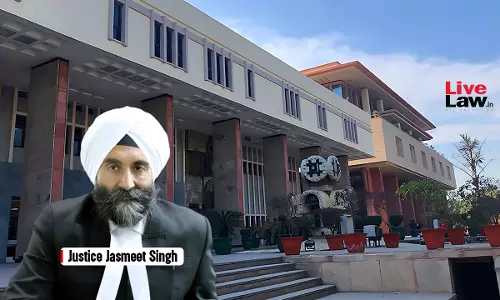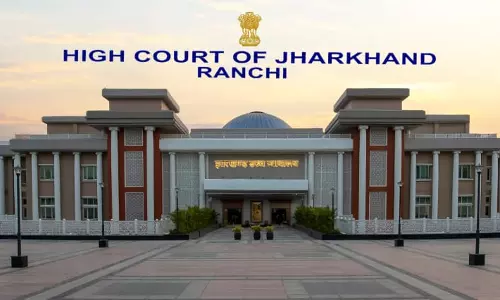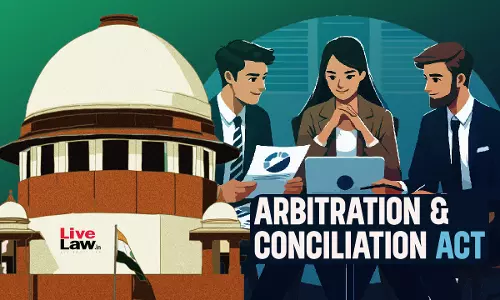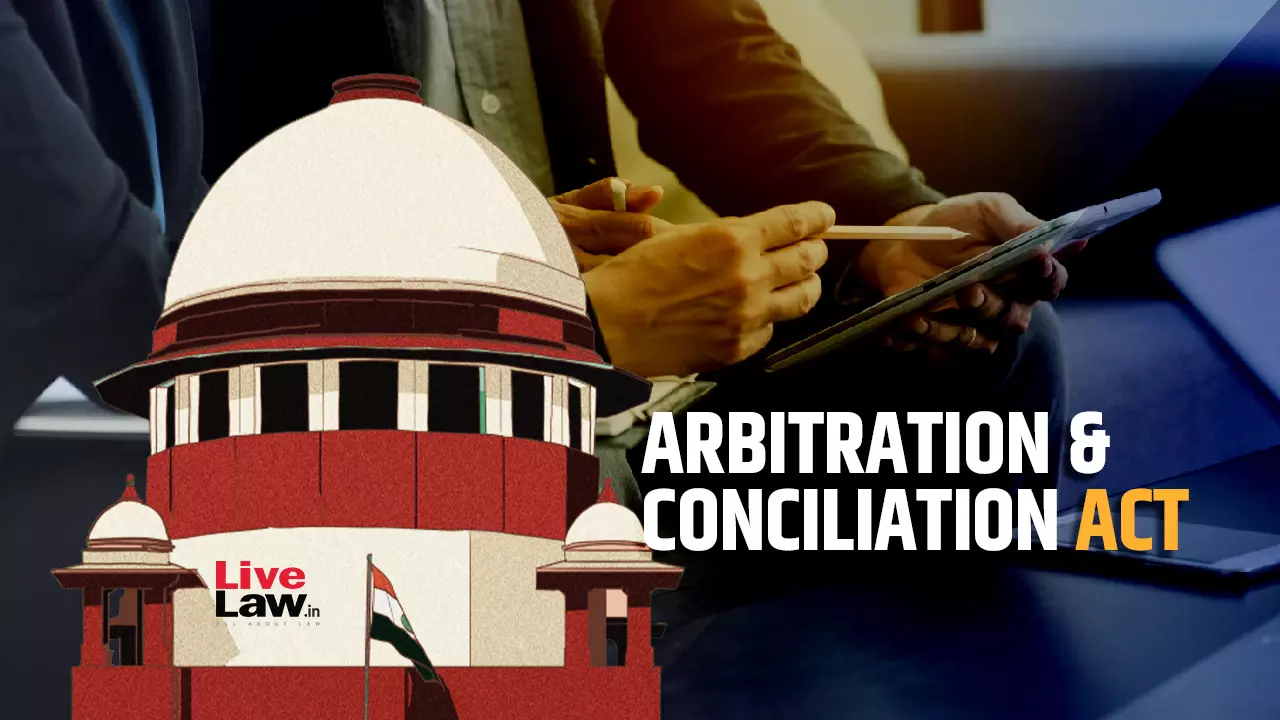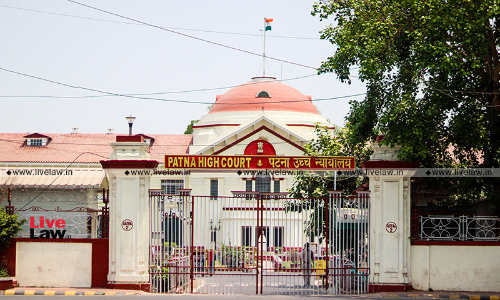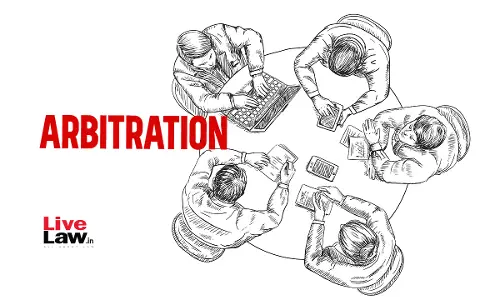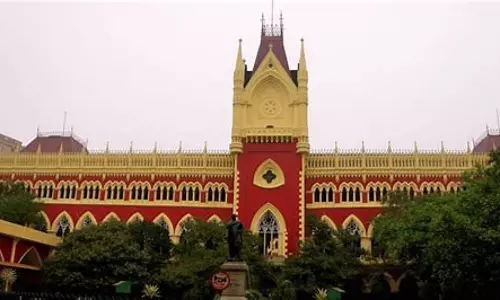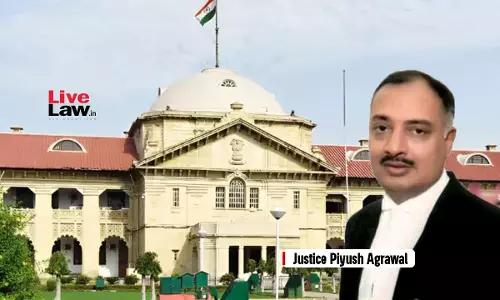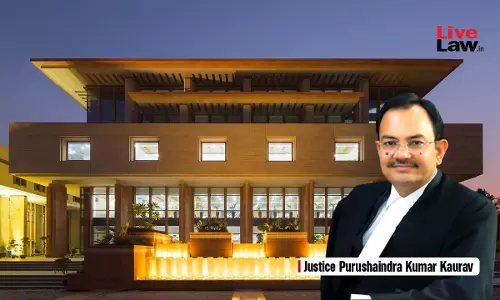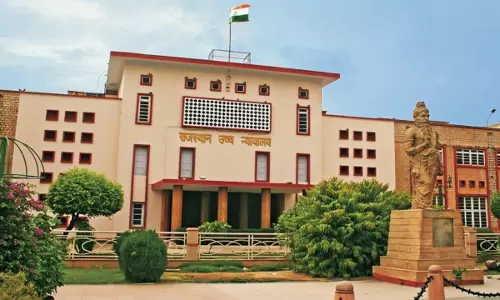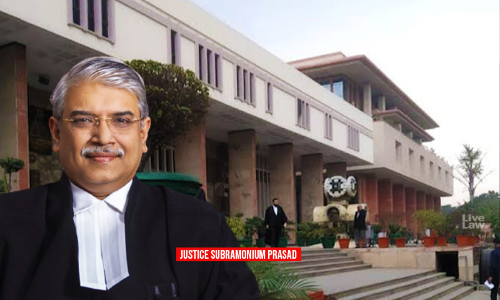Arbitration
Arbitrator's Decision To Defer Compliance With Essential Pre-Condition In Agreement Amounted To Rewriting Contract, Vitiated It: Delhi HC
The Delhi High Court Bench of Justice Jasmeet Singh while allowing a petition under Section 34, Arbitration and Conciliation Act (“ACA”) observed that when the contract required the bidder to establish an office in India as a pre-requisite to performance, the decision by the Arbitrator holding that compliance could be deferred, amounted to rewriting the contract. Such a holding...
Purpose Of A&C Act Stands Defeated If There Are Delays In Executing Arbitral Award: Jharkhand High Court
The Jharkhand High Court division bench comprising Chief Justice Tarlok Singh Chauhan and Justice Rajesh Shankar observed that the purpose and the object of the Arbitration and Conciliation Act, 1996, and the Commercial Courts Act, 2015, would stand defeated if there are delays in the execution of the Arbitral Award. The present petition was filed by M/s/ R.K. Construction...
S. 37(1)(a) Arbitration Act | Clause Restricting Interest On Delayed Payments By Itself Won't Bar Pendente Lite Interest : Supreme Court
The Supreme Court on Tuesday (Sep.2) observed that an Arbitral Tribunal can grant pendente lite interest unless expressly or impliedly barred in the contract. It added that a contractual clause barring interest on delayed payments does not prevent an arbitral tribunal from awarding pendente lite interest, i.e., the interest for the period during which the arbitration is...
Arbitration | Delivery Of Award To Govt Official Not Connected With Case Doesn't Amount To Valid Service On State : Supreme Court
The Supreme Court has clarified that when the government or one of its departments is a party to arbitration, delivery of an arbitral award to an official who is not connected with or aware of the proceedings cannot be treated as valid service for commencing the limitation period to challenge the award. Citing its ruling of Union of India vs. Tecco Trichy Engineers & Contractors (2005),...
S.5 Of Limitation Act Applies To Revision Pleas Under Bihar Public Works Contracts Disputes Arbitration Act: Patna High Court
The Patna High Court Bench of Justice Ramesh Chand Malviya has observed that Section 5, Limitation Act applies to revisions under Section 13, Bihar Public Works Contracts Disputes Arbitration Act, 2008 (“BPWCDA Act”), meaning thereby that delay in filing a challenge to awards passed under BPWCDA Act can be condoned by applying Section 5, Limitation Act. Since there were...
Tomorrow's Arbitration: Transparency, Efficiency and Trust
From the Past to the Present: The Story of ArbitrationSince the dawn of time, humans have engaged in some form of arbitration for resolving disputes. Thus, the private adjudicatory process of arbitration can be said to have a prehistoric origin. However, even after courts were established by the state and rules of procedure and evidence were designed and courts became the accepted method of resolving disputes, the practice of arbitration continued because parties to a dispute wanted to settle...
Delivery Of Certified Copy Of Award After Signing & Authentication Constitutes Valid Service U/S 31(5) Of Arbitration Act: Calcutta HC
The Calcutta High Court bench of Justice Shampa Sarkar held that delivery of a certified copy of the award, signed by the members, when properly addressed, stamped, and sent by speed post with delivery confirmed by the postal department, amounts to effective service even if the original signed copy of the award is not dispatched. The present application has been filed under section 47...
Executing Court Empowered To Grant Statutory Interest Not Mentioned In Award U/S 36 Of Arbitration Act: Allahabad High Court
Following the judgment of the Delhi High Court in Union of India and Anr. v. Sudhir Tyagi, the Allahabad High Court has held that under Section 36 of the Arbitration and Conciliation Act, 1996, the Executing Court is empowered to grant statutory interest which may not have been mentioned in the arbitral award.In Union of India and Anr. v. Sudhir Tyagi, it was held that “..the interpretation...
Dismissal Of Plea U/S 8 Of A&C Act Amounts To Res Judicata; S.11 Court Cannot Refer Parties To Arbitration: Delhi High Court
The Delhi High Court bench of Justice Purushaindra Kumar Kaurav, while dismissing a Section 11 petition under the A&C Act, observed that dismissing a Section 8 application under the A&C Act amounts to res judicata. The Section 11 Court cannot refer the parties to Arbitration if the order dismissing Section 8 is not set aside or interfered with. A Collaboration Agreement...
Filing Application U/S 10 Of Commercial Courts Act With S.34 Petition Fulfills Requirements U/S 34 Of A&C Act: Rajasthan High Court
The Rajasthan High Court Bench of Justices Sanjeev Prakash Sharma and Chandra Prakash Shrimali has held that merely if an application filed under Section 10, Commercial Courts Act (“CCA”) does not mention Section 34, Arbitration and Conciliation Act (“ACA”) in the heading, it does not mean that the application cannot be treated as an application under Section 34, ACA....
Govt Notifications Imposing Restrictions On Usage In Contracts For Supply Of Gas Are Laws Under Article 12, Must Be Complied With: Delhi HC
The Delhi High Court, while dismissing a Section 34 petition, observed that the five contracts entered into between the parties were subject to the restrictions imposed by the Government. By providing the gas at a subsidised price, the Government has the authority to regulate the use of such gas. The bench of Justice Subramonium Prasad held that the Ministry of Petroleum and Natural...
Mere Non-Signing Won't Invalidate Arbitration Agreement If Parties Otherwise Consented To Arbitration : Supreme Court
The Supreme Court observed that merely because an arbitration agreement was not signed, there is no bar to refer the dispute to arbitration, if the parties have otherwise consented to arbitration.The bench comprising Justices Sanjay Kumar and Satish Chandra Sharma set aside the Delhi High Court's decision which declined reference to arbitration merely because Respondent No.1 didn't sign...



